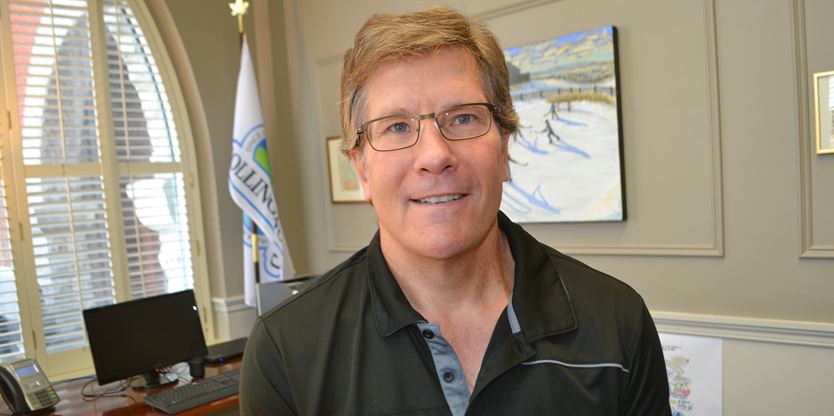Collingwood’s mayor says he recognizes the public’s concerns over the cost of the judicial inquiry.
Brian Saunderson acknowledged he always saw the potential for escalating costs, even when council was given an original estimate of $1.6 million.
At the end of October, the bill for the inquiry, which returned 306 recommendations to the municipality and the province on improving governance processes, stood at $7.7 million.

“That’s a lot of money for a community to pay to find out how a transaction was done so badly, and how our community was victimized to the tune of tens of millions of dollars,” he said in response to questions from Simcoe.com.
Saunderson, who put forward the motion in February 2018 to begin the inquiry process, said it was not something that could have been stopped once the ball was rolling.
“It’s a little like skydiving: once you step out of the plane, you’re going down,” he said.
The total cost includes more than $1.4 million for Lenczner Slaght, the legal firm of the town’s lead counsel at the inquiry, Will McDowell. The town’s legal costs were more than $1.58 million.
At the request of Simcoe.com, the town has provided a breakdown of expenses related to the inquiry, including the costs of lawyers, inquiry staff, the inquiry website, document preparation and legal analysts.
It includes $53,800 to move the Treasury Department to leased office space on Hurontario Street in order to accommodate inquiry staff.
Other costs of note:
• The cost of commission counsel was more than $2.5 million;
• Autcon was paid $74,700 to handle the website;
• George Marron, lawyer for former mayor Sandra Cooper, was paid $289,000;
• Eight legal analysts involved in the inquiry cost more than $993,000;
• Digi Tran Inc., which handled court reporting, was paid close to $139,000;
• Document management costs were more than $745,000.
It was the sheer number of documents — more than 440,000 — that helped drive up the cost, the mayor said.
The inquiry commissioner had also anticipated all three phases of the inquiry being concluded by the middle of June. It went seven months beyond that.
“For everyone in the community to say we had everything we needed to know in terms of what happened, that was clearly not the case,” Saunderson said.
Staff are expected to report back to council early in the new year on the progress of implementing the report’s recommendations.
Saunderson said the public will then have a chance to weigh in on the inquiry. However, he said, reflecting on how council will react to the recommendations would be more productive than focusing on the final bill.
“I can understand the public’s frustration with the cost of this hearing, but … it was a necessary process,” he said. “I don’t think it’s acceptable to just turn your back and walk away and say, ‘We’re not going to do this, we don’t have the courage and wherewithal … and now that we have the results, it didn’t tell us anything we didn’t already know.’”
